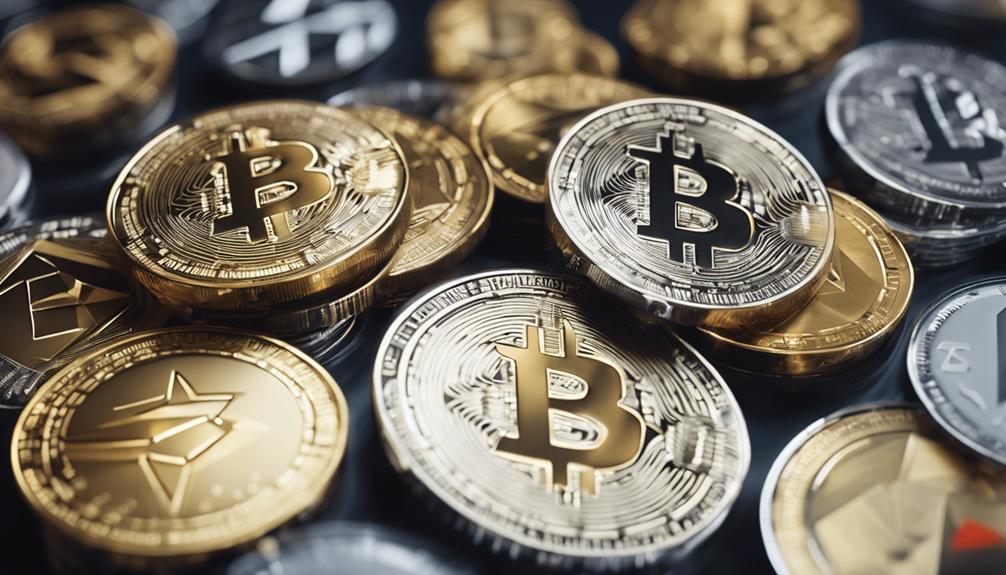Texas is stepping up its game in the cryptocurrency arena by proposing a bill that would allow the state to invest public funds in Bitcoin. This bold move could set a new precedent for how states engage with digital currencies. With a focus on economic freedom and innovation, what does this mean for the future of Bitcoin in Texas? The implications are vast and worth considering.

As Texas positions itself at the forefront of Bitcoin adoption, you'll find a wave of legislative support driving this digital currency into the spotlight. Lieutenant Governor Dan Patrick's backing of the Bitcoin Reserve proposal for the 2025 legislative session is a bold step toward integrating Bitcoin into the state's financial landscape.
Senate Bill 778 aims to allocate up to 1% of Texas' general revenue for Bitcoin purchases, marking a significant shift in how the state views this cryptocurrency. By establishing a Strategic Bitcoin Reserve, Texas could become the first state to embrace this approach, enhancing its role within the digital economy. Texas could become the first state to establish a Strategic Bitcoin Reserve, which could set a precedent for digital currencies in the U.S.
Senate Bill 778 represents a pivotal shift for Texas, potentially making it the first state to create a Strategic Bitcoin Reserve.
This initiative is expected to boost economic freedom and solidify Texas' position in the burgeoning cryptocurrency space. As more legislative proposals emerge, the Lone Star State is becoming a hotspot for Bitcoin innovation, which could lead to a transformation in how residents and businesses interact with digital currencies.
Political endorsements play a crucial role in this movement. Senator Ted Cruz's public advocacy for Bitcoin growth has already yielded tangible market impacts, with Bitcoin's price jumping from $45,000 to $47,200 following his announcement.
This surge in interest isn't just limited to Bitcoin; Ethereum and other cryptocurrencies have also seen price increases, indicating a broader market enthusiasm around Texas' initiatives. On-chain metrics reveal a 20% rise in active Bitcoin addresses, showcasing heightened interest in the state's plans.
Senate Bill 778 also includes provisions for collecting Bitcoin through taxes, fees, and donations, with a five-year holding period aimed at fostering long-term investment.
The Texas D.O.G.E. proposal complements this by enhancing the state's financial infrastructure and crypto governance. The oversight by the Texas Comptroller's Office ensures security, with strict measures against acquisitions from foreign entities or those linked to illegal activities.
The economic benefits are substantial. Bitcoin mining facilities not only contribute to local economies but also support public school funding, enhancing fiscal independence for Texas.
By diversifying state assets and stimulating local economies, a Bitcoin reserve could serve as a counterbalance to potential federal fiscal pressures. Moreover, these mining facilities are becoming vital employers in their regions.
Ultimately, Texas is positioning itself to integrate Bitcoin into its financial infrastructure. By allowing public funds to be invested in Bitcoin, similar to moves made by states like Pennsylvania and Ohio, Texas is creating a supportive regulatory environment that could redefine the future of finance in the state.
You can expect Texas to lead the charge in Bitcoin adoption, paving the way for a new era of economic resilience and innovation.

Trezor Model One – The Original Cryptocurrency Hardware Wallet, Bitcoin Security, Store & Manage 1000's of Coins&Tokens, Easy-to-Use Interface, Quick & Simple Setup (Black)
All-in-one hardware wallet for easy crypto security, storage & use
As an affiliate, we earn on qualifying purchases.
As an affiliate, we earn on qualifying purchases.

Avalon Q 90TH/s Bitcoin Miner by New Canaan – 18.6J/TH 1674W ASIC Miner, Ultra-Quiet Home Mining Crypto Machine, 110V-240V, Included Original US Power Cord in US Stock
Genuine New Canaan Avalon Q Miner with full manufacturer warranty. Trust a reliable seller – no used or…
As an affiliate, we earn on qualifying purchases.
As an affiliate, we earn on qualifying purchases.

Cryptocurrency Investing For Dummies (For Dummies (Business & Personal Finance))
As an affiliate, we earn on qualifying purchases.
As an affiliate, we earn on qualifying purchases.

TANGEM Wallet Pack of 2 – Secure Crypto Wallet – Trusted Cold Storage for Bitcoin, Ethereum, NFT's & More Coins – 100% Offline Hardware Wallet
THE HIGHEST LEVEL OF SECURITY: Tangem Wallet generates the private key that never leaves the card. Your crypto…
As an affiliate, we earn on qualifying purchases.
As an affiliate, we earn on qualifying purchases.









